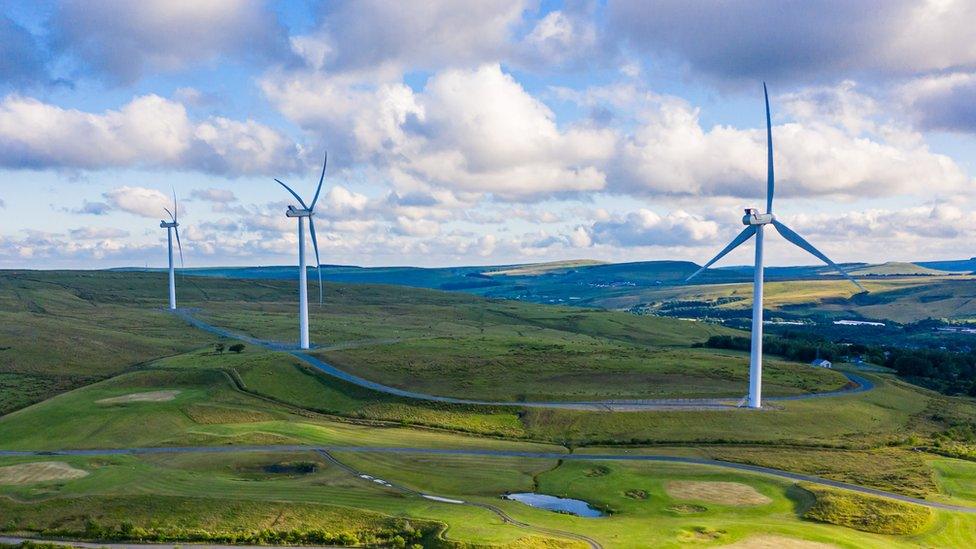Nuclear: What's in the UK's energy strategy for Wales?
- Published
- comments

The proposed design of Rolls Royce's small modular reactor on Anglesey
Backers of a new nuclear plant in Wales have had their hopes raised by the UK government's energy security strategy.
It proposes a big push towards more nuclear power, with the Wylfa site on Anglesey specifically mentioned.
Targets for offshore wind are increased too, with one firm saying that presented big opportunities for Wales.
But opponents of nuclear power have said they are "appalled" at the strategy's focus.
Consumers are facing soaring energy bills after the Russian invasion of Ukraine pushed gas prices even higher.
In a bid to boost the country's homegrown energy supplies and cut carbon emissions, the plan proposes a new goal for nuclear plants to deliver 25% of the UK's electricity demand by 2050.
That requires a major expansion, with all but one of the UK's existing nuclear power stations set to be decommissioned by 2030.
Wylfa is mentioned alongside Sizewell in Suffolk and Oldbury in South Gloucestershire as favoured locations, with the UK government saying it will "immediately begin work to secure access to the sites."
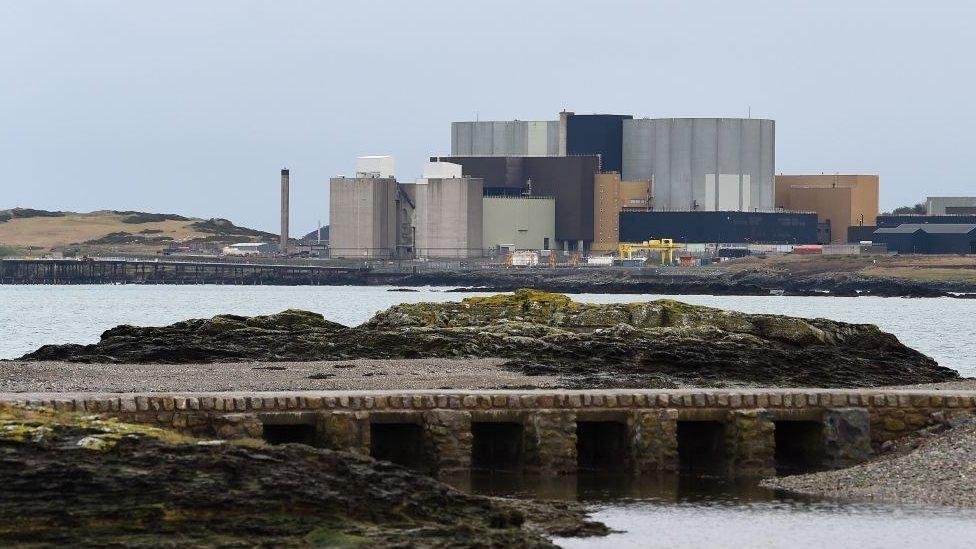
Wylfa Newydd nuclear plant was switched off in 2015 and is being decommissioned
Speaking to BBC Wales in Llandudno, Conwy county, Ken and Meriel Chippendale said: "On a day like this wind turbines are a great idea, but not nuclear because we haven't decided what to do with the waste, we haven't solved that yet.
"With nuclear it's not just an immediate problem, it's forever."
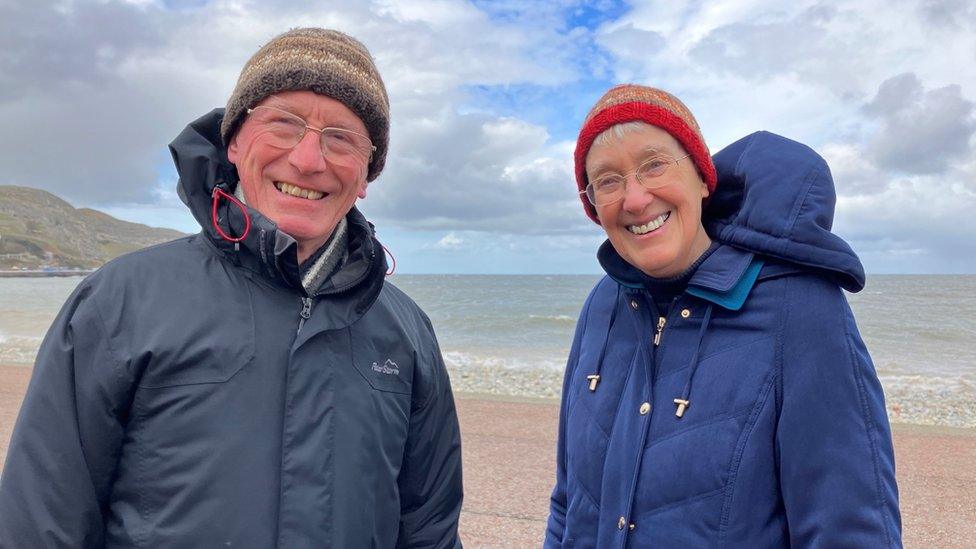
Ken and Meriel Chippendale said they need to insulate their houses a lot more or walk quickly along the promenade because it is freezing
Martin Platt said: "I'm generally in favour of more windfarms, possibly offshore is better but there needs to be a mixture of wind, nuclear and solar.
"I think we need to increase nuclear if we're going to get rid of fossils fuels, we need something consistent when fossil fuel isn't."
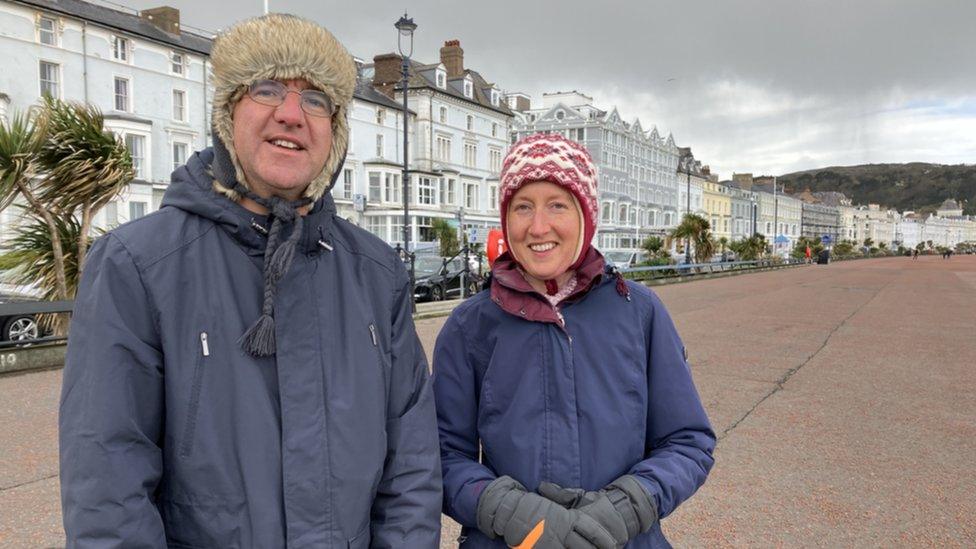
Vicky Platt, pictured with Martin Platt, thinks windfarms are the way to go
A new public body, Great British Nuclear, will be set up to bring forward new projects and a £120m fund launched later in April to help companies develop their plans.
A partnership of US firms eyeing Wylfa hopes to access some of this funding, with the Welsh Secretary Simon Hart having flown to Georgia to speak with them this week.
If the technology is approved soon, a fleet of small modular reactors (SMRs) will also form "a key part of the nuclear project pipeline", ministers said.
Rolls Royce has previously told BBC Wales that Wylfa and the former nuclear site at Trawsfynydd in Gwynedd are at the top of its list of potential locations for deploying SMRs.
Meanwhile, another firm developing the technology - Last Energy - is also reported to be targeting Wales.
Mark Salisbury, chairman of the Wales branch of the Nuclear Institute described the energy security strategy as a "great step forward" for both Wylfa and Trawsfynydd.
"We've got fantastic sites here with host communities that are very used to operating nuclear power plants and have seen the benefits of generations of employment from these plants."
Previous plans for a new power station at Wylfa fell through in 2020 after energy giant Hitachi pulled out over its cost.
Mr Salisbury said there was now a "concerted effort to address the financing issues of nuclear with a new finance bill which will dramatically reduce upfront building costs".
"That should make plants more deployable and that means cheap, clean power for the consumer which will really help with energy prices," he said.
John Williams, owner of Y Wygr fish and chip shop in Cemaes near the Wylfa site, said a new power plant was needed "for the sake of the island".
In recent years - after the former power station shut - the shop stopped opening at lunchtimes due to dwindling passing trade.
"It's affected the village quite badly - there's no jobs around here - without Wylfa we'll die completely," he said.
'Likely to increase energy bills'
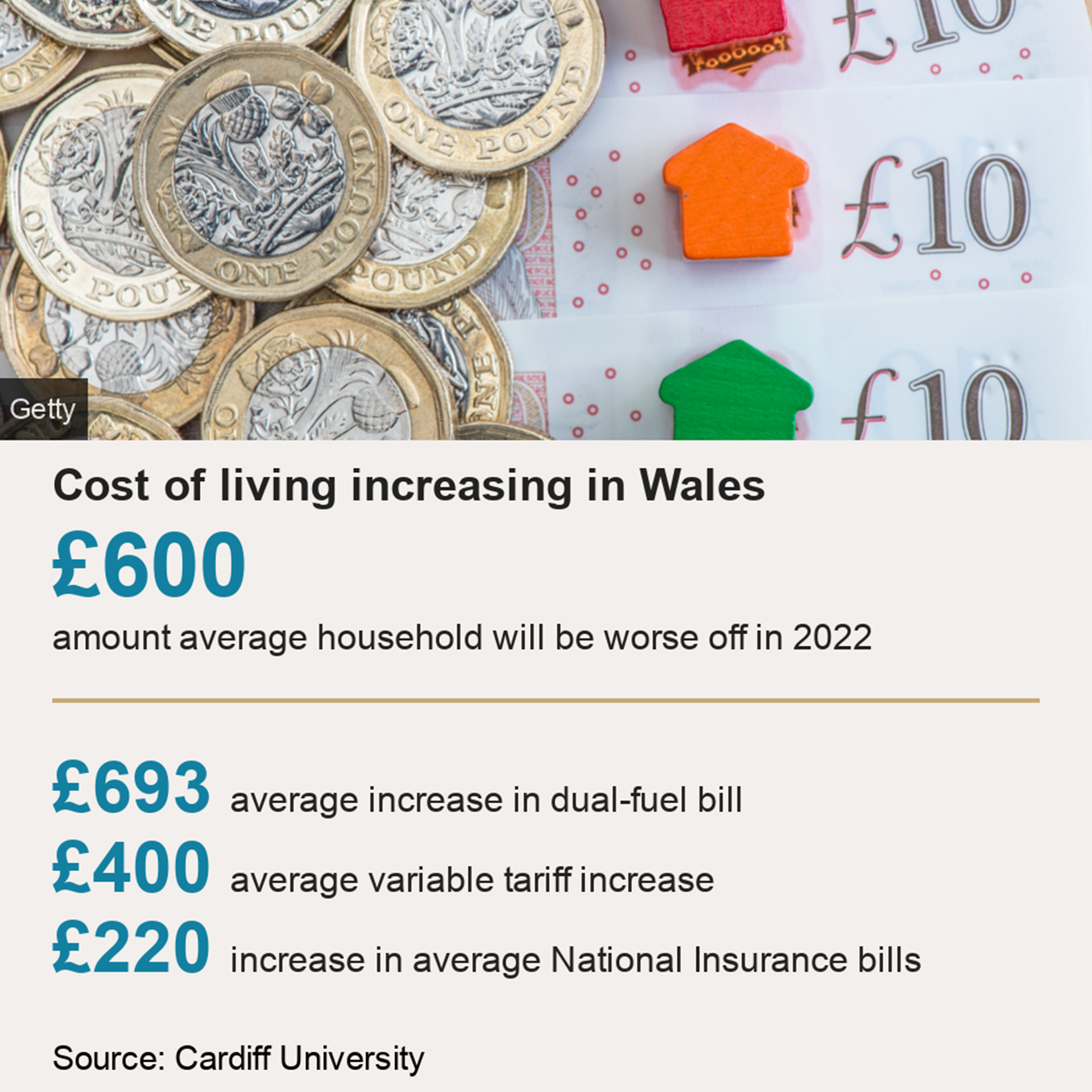

UK energy prices have been rising for months due to surging demand as Covid restrictions eased. But the Russian invasion of Ukraine pushed up costs up even further.
However, Mag Richards of the Welsh Anti Nuclear Alliance claimed the strategy's focus on nuclear power was likely to increase energy bills, not lower them.
"We are appalled by this huge lost opportunity to address the immediate problems being faced by consumers and the climate," she said.
"We need to act now by turning to renewables and energy storage not by adding extra taxes to already inflated energy bills to fund a technology that cannot deliver on time and will cost the earth."
Offshore wind turbine hopes
Higher targets for how much electricity is generated by offshore windfarms should lead to more being built off the coast of Wales.
50GW worth - enough to power every home in the UK - is being aimed for by 2030 - with 5GW of that to come from new floating windfarms.
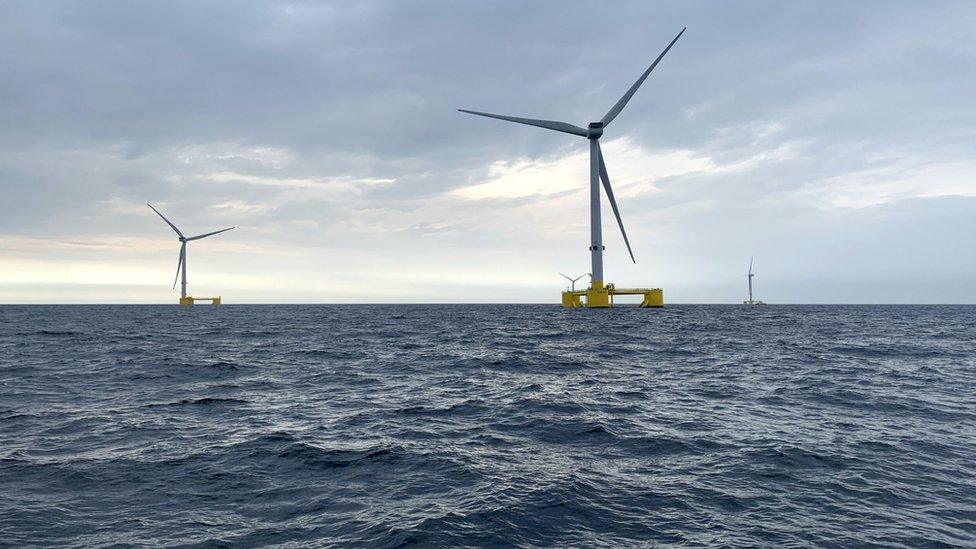
Falck Renewables and BlueFloat Energy are planning two offshore windfarms in the Celtic Sea. They’ll each be capable of generating enough power for 230,000 homes
Saurabh Shah of Falck Renewables, one of a number of companies working on plans for new windfarms in the Celtic Sea off Pembrokeshire, said new targets would help attract investors.
"There is a growth story here for Wales," he said.
"You start with these projects that will be among the first in the world at this stage and that will create future potential export opportunities."
Plans to double the UK's low carbon hydrogen production capacity - as an alternative to gas and petrol - will also be welcomed in Milford Haven and on Anglesey where work is under way to develop hydrogen hubs.
Expert explains what large storms mean for wind power
Minimal reference is made to the potential for tidal energy - apart from the government saying they will "aggressively explore" the potential opportunities.
Ministers also say they will work with Welsh government and the energy regulator Ofgem to improve grid capacity in Wales.
This is considered a long-standing major issue - with parts of the network fully booked, making it impossible for communities wanting to add new renewable energy schemes to do so.
Will Henson, energy policy lead at the Institute of Welsh Affairs, said the grid was not fit for purpose across Wales.
"We've reached a point of decision making about what we want our national grid to look like - because that's what's going to underpin a lot of Wales' ambitions to produce more energy through renewable sources.
"We need to be able to plug into that grid, it needs to be fit for our needs in Wales - and (the power to do that) is obviously held in London."
- Published3 February 2022

- Published28 October 2021
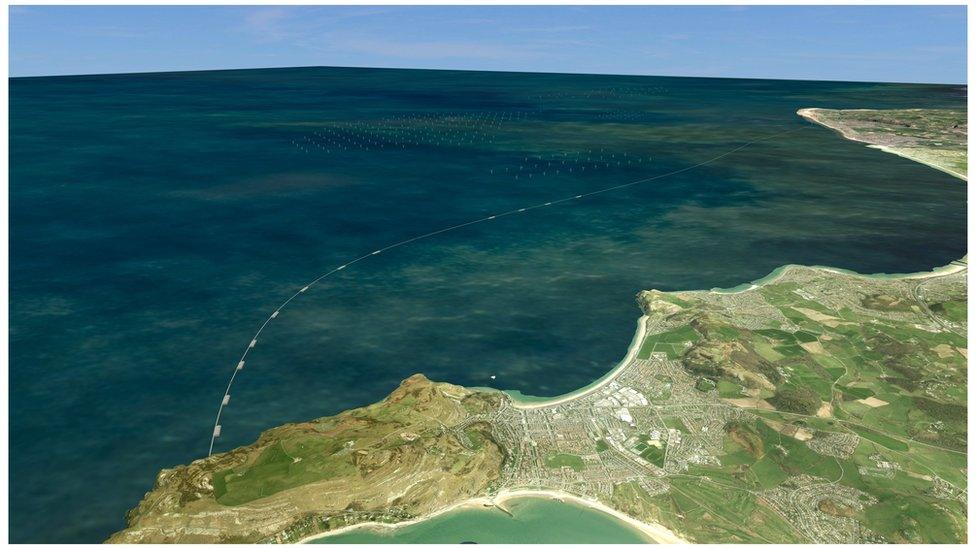
- Published10 January 2022

- Published11 November 2021
